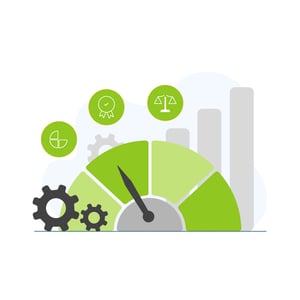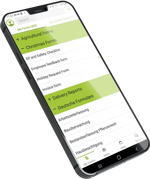Data gathering can be time-consuming due to several factors:
Volume of Data:
Depending on the scope of the data gathering task, the sheer volume of data to be collected can contribute to the time-consuming nature of the process. Collecting data from multiple sources, numerous individuals, or large datasets can be a time-intensive endeavor.
Manual Processes:
Traditional data gathering methods often involve manual processes, such as filling out paper forms or conducting face-to-face interviews. These manual processes require additional time for data entry, transcription, and verification, leading to increased time consumption.
Complex Data Requirements:
Data gathering tasks may involve collecting complex or detailed information that requires careful consideration and attention to detail. This could include extensive questionnaires, intricate measurements, or detailed observations, all of which demand additional time for accurate data collection.
Geographic Dispersal:
When data needs to be collected from various geographic locations, the logistical challenges of coordination, travel, and communication can significantly increase the time required for data gathering. Coordinating schedules, organising field visits, and managing remote data collection can all contribute to the time-consuming nature of the process.
 Quality Assurance:
Quality Assurance:
Ensuring data quality and accuracy is crucial, but it often requires additional time and effort. Data validation, cross-checking, and quality assurance procedures may need to be implemented to minimise errors and ensure the reliability of the collected data.
Data Privacy and Consent:
Respecting data privacy regulations and obtaining proper consent from participants can add an extra layer of complexity and time to the data gathering process. Ensuring compliance with legal and ethical considerations requires thorough documentation and verification, prolonging the overall time spent on data gathering.
To mitigate the time-consuming nature of data gathering, organisations can leverage technology and tools specifically designed for efficient data collection. Mobile data collection tools like Kizeo Forms, for example, streamline the process by enabling digital data capture, real-time validation, and automated workflows, significantly reducing the time and effort involved in traditional manual processes.
 Kizeo Forms helps save time by streamlining the data gathering process. With its digital forms, data can be collected directly using mobile devices, eliminating the need for manual paperwork and subsequent data entry. The platform offers features like pre-defined fields, drop-down menus, and auto-fill options, accelerating data input and reducing errors. Real-time data validation instantly identifies and alerts users to any inconsistencies, allowing for immediate corrections. Automated workflows and integrations with other systems further enhance efficiency by automating data processing and reducing manual tasks. Overall, Kizeo Forms simplifies and expedites data collection, enabling users to save valuable time and allocate resources to other critical tasks.
Kizeo Forms helps save time by streamlining the data gathering process. With its digital forms, data can be collected directly using mobile devices, eliminating the need for manual paperwork and subsequent data entry. The platform offers features like pre-defined fields, drop-down menus, and auto-fill options, accelerating data input and reducing errors. Real-time data validation instantly identifies and alerts users to any inconsistencies, allowing for immediate corrections. Automated workflows and integrations with other systems further enhance efficiency by automating data processing and reducing manual tasks. Overall, Kizeo Forms simplifies and expedites data collection, enabling users to save valuable time and allocate resources to other critical tasks.
